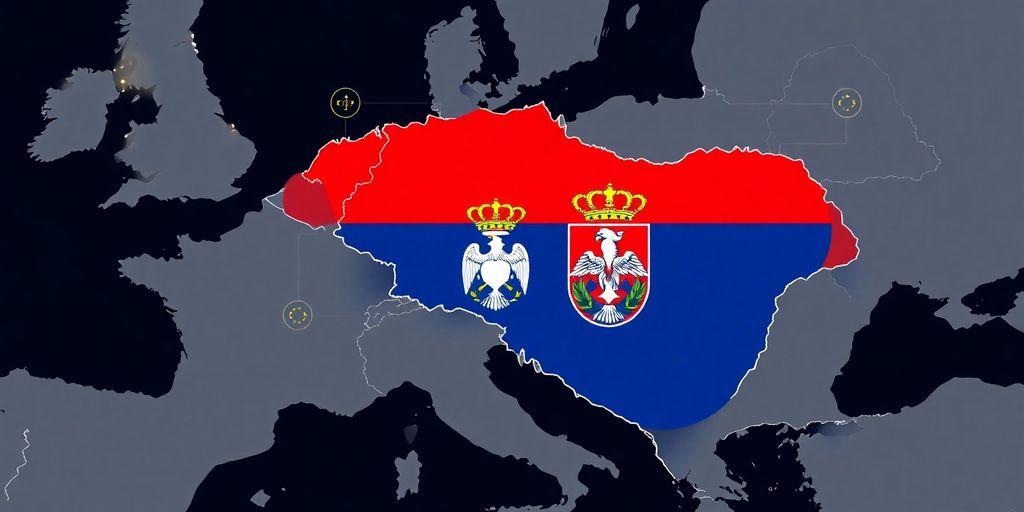Serbia is navigating a complex landscape of international relations and domestic reforms as it aims for European Union accession. With significant diplomatic engagements and partnerships, the country is poised to tackle upcoming challenges while strengthening its global ties.
Key Takeaways
- Serbia aims for EU membership by 2026, focusing on internal reforms.
- Strengthening relations with China and the UK is a priority.
- A memorandum with France’s AFD supports Serbia’s energy transition.
Serbia’s EU Aspirations
Serbian Parliament Speaker Ana Brnabic emphasized that 2025 will be a pivotal year for Serbia, marking important anniversaries that could shape the region’s future. She reiterated that the primary goal of Serbian diplomacy is to secure EU membership, which requires meeting stringent membership criteria.
Brnabic stated, "The responsibility is upon you for Serbia to grow stronger through those challenges," addressing Serbian diplomats at an ambassadorial conference. She highlighted the need for efficient and wise diplomacy to navigate the complexities ahead.
Strengthening Ties with China
Serbia’s relationship with China has reached unprecedented levels, according to Foreign Minister Marko Đurić. During his recent visit to China, he expressed confidence in the ongoing cooperation, particularly within the framework of the Belt and Road Initiative.
Key points from Đurić’s visit include:
- Continued support for mutual interests, especially regarding sovereignty and territorial integrity.
- Commitment to enhancing economic ties and participating in significant projects.
- Recognition of China’s support for Serbia’s stance on Kosovo, a central issue for the nation.
Building Partnerships with the UK
In a separate diplomatic effort, Serbian Prime Minister Miloš Vučević met with the UK Prime Minister’s Special Envoy to the Western Balkans, Stuart Peach. The discussions focused on advancing bilateral relations and enhancing economic cooperation.
Vučević emphasized the importance of:
- Joint projects in infrastructure and energy, crucial for Serbia’s economic growth.
- Regional cooperation as a foreign policy priority, aimed at maintaining peace and stability.
Energy Transition Initiatives
Serbia is also making strides in its energy sector, recently signing a memorandum of understanding with France’s AFD. This agreement aims to support Serbia’s energy transition and align with EU standards.
Key aspects of the MoU include:
- Development of innovative tools for climate objectives.
- Funding of €650,000 to facilitate the transition to a low-carbon development model.
- Collaboration on nuclear energy and strategic mineral resources.
Conclusion
As Serbia embarks on this multifaceted journey towards EU accession, it is simultaneously strengthening its international partnerships. The government’s commitment to internal reforms, coupled with strategic alliances, positions Serbia to face the challenges of the coming years while fostering a sustainable and prosperous future for its citizens.
Sources
- Brnabic: 2025 to bring many challenges to Serbia, region, our goal is EU accession, tanjug.rs.
- Strengthening relations between Serbia, China continues, Влада Републике Србије.
- Serbia firmly committed to continuing cooperation with China, Влада Републике Србије.
- Serbia committed to strengthening partnership, cooperation with UK, Влада Републике Србије.
- Serbia signs MoU with France’s AFD to boost energy transition, tanjug.rs.






